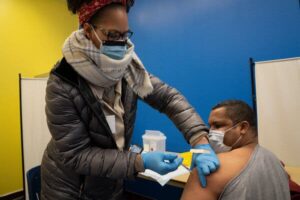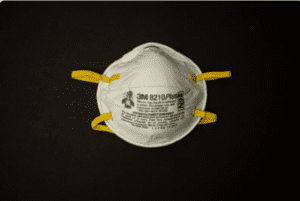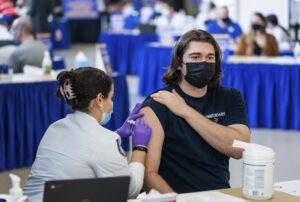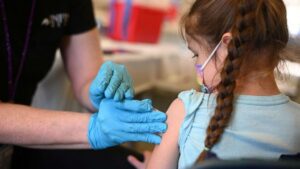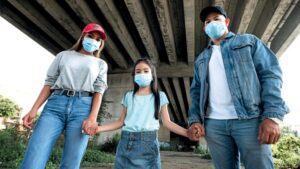‘Should I start returning to normal?’ Experts still advise caution for those recovering from Omicron.
It is still not clear just how much acquired immune protection from breakthrough COVID-19 infections is enough to ward off future infection, or whether the virus might mutate in ways that evade even bolstered immunity. T cells and B cells that have encountered viruses are said to have “immune memory” because the cells offer more durable protection. Dan Barouch, MD, PhD (Center for Virology and Vaccine Research, BIDMC), shared that while there has not been a lot of focus on immune memory, it critically important for any vaccine, and knowing how the vaccine protects six to 12 months after administration may be the most important thing to know. Barouch added that people who have been vaccinated and had a breakthrough infection still need to be cautious by adhering to public health guidelines.


